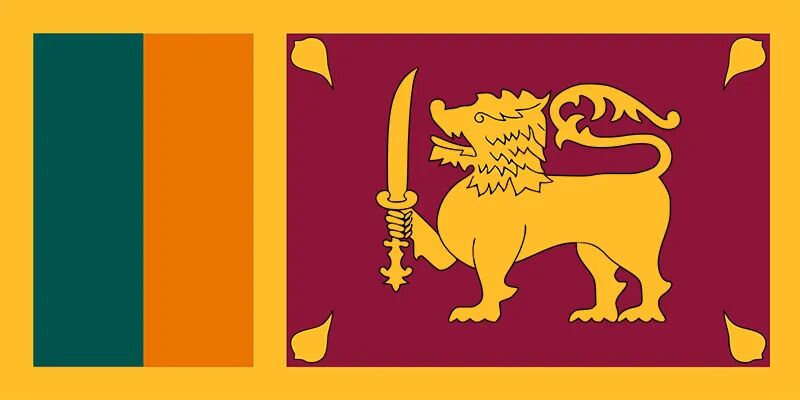10 Filipino Values That Make PH a Top Outsourcing Destination
The Philippines, billed as the “Call Center Capital of the World,” is a consistent top outsourcing destination for one good reason: the Filipino people. Aside from their wide range of skills and a sense of readiness to serve a global audience, unique Filipino values make them built exactly for the outsourcing industry.
What is a Filipino?
People would often wonder, albeit silently, whether Filipinos are Pacific Islanders, East Asians, Malays, or Hispanics. The curiosity is not unfounded because if you map it out, the Philippines is at the center of various countries, such as China, Vietnam, Malaysia, Indonesia, and Japan, and it also sits right beside the wide expanse of the Pacific Ocean. So, what really is a Filipino?
If we ask science, the answer would be all of the above. The mixed heritage of Filipinos shows up in their genes. Filipino scientist Michael Purugganan, the Dean for Science at New York University, looked into his own genetic code and saw a variety of mixed European and Asian genes inside his nucleus. He said all evidence point to the fact that Filipinos are “all mixes.”
“I think every Filipino who is genetically tested will show up as a mix. We are products of what we evolutionary genomicists call genetic admixture, the result of several thousand years of mixing in our island archipelago at the edge of the Pacific. We were always getting genes from everyone who came to our shores. We are, in a genetic sense, a truly global people,” he wrote in a 2013 column.
READ MORE: 7 Reasons Why Businesses Outsource in The Philippines
Even before the Philippines was called by its modern name, native inhabitants of these islands came from different races. The result was a diverse group of people with Malay, Chinese, Hindu, Arab, and Polynesian roots. Then, the Spanish came, and ruled for over 300 years, throwing in a mix of their genes and culture, before the Americans and the Japanese came.
You might be wondering why this is important in the discussion of Filipino values. And the answer is that all the modern Filipino values, as we know them today, came from the Philippines’ long history of mixing various cultures. What the Filipinos are today is a product of a collective experience that stretches beyond time. And this is what makes them perfect for the outsourcing industry.
Filipino values explained
World-class hospitality
When you ask a person who has been to the Philippines, one of the first things that will tell you about the country is how welcoming the people are. When visitors arrive at a Filipino home, you could almost always expect a small celebratory feast, even when the host does not have much to give. Filipinos would always want their visitors to be at ease and feel at home.
Coming from a culture with a long history of foreign visits, Filipinos have developed this brand of hospitality that always comes with sincerity, warmth, and friendliness – an attitude that they bring everywhere, even at the office where they would want to make a new colleague or a visitor comfortable when he or she comes in.
Family comes first
Maybe almost every nation can claim to have a deep sense of family in their culture, but family rings differently for Filipinos. Family, for many Filipinos, is the reason why they study, work, or do the things they do every single day. Filipinos would never leave family behind. When a person reaches a comfortable status in life, he or she will help even cousins and nephews. It’s all for one and one for all.
Perhaps, the best explanation for this is the current state of life in the Philippines. The majority of Filipinos are either in the working class or farmers. In the urban setting, it can be hard to make ends meet because of the high cost of living, so there’s always a tendency for college graduates to contribute to the family when they get a good-paying job, before saving up on their own.
Filipino families are typically large, extending to first and second cousins. They either live close to each other or they visit each other frequently. The mindset behind this is that there are more chances of getting a better life if family members, even the distant ones, help each other out. And when you are a colleague, a boss, or a friend who has helped a Filipino in life, consider yourself part of their family.
READ MORE: 7 Reasons Why Businesses Outsource in The Philippines
Pakikísáma
The closest English equivalents we can use for “pakikisama” are fellowship and comradeship, but it actually goes beyond. Pakikisama happens when a Filipino chooses to get along with other people, rather than stand out and leave someone behind or step on another person’s toes. Filipinos would always want their team to be united, as they are used to this kind of atmosphere at home.
Pakikisama yields a lot of positive attitudes in the workplace. Filipinos, because of this value, would always check on someone, encourage a colleague who feels down and do everything to keep the team intact. Pakikisama also reflects in the way Filipinos accept recognition. They would always mention the contribution of the team instead of owning all of the awards.
Living spirituality
The Philippines is a predominantly Catholic country, with a large southern region where people practice Islam. And Filipinos value their faith the same way they value their life and principles. Why? Because they are typically tightly knitted together. Filipinos not only believe in their faith, but they also practice it every time they get a chance.
Occasions such as the Holy Week and Christmas allow them to showcase their faith in a grand manner, visiting churches with the family, doing penance on the street, reciting days-long novenas, and even having a picnic in cemeteries when remembering the dead during All Saints Day and All Souls Day. Even Filipino Muslims down south show their faith with larges prayer gatherings during Ramadan.
However, it is not only during these grand celebrations when they show their faith. Their spirituality is also the reason why Filipinos deeply respect their elders, why they always strive to remain kind towards others in the workplace, why they are easily forgiving people, and why there is always a willingness to help a friend or a colleague.
Intense national pride
Back when world boxing champion Manny Pacquiao was active in competition, the Philippines would consistently record zero crimes throughout the country. The reason? It’s because literally everyone is back at home, or at a sponsored public viewing at the nearest covered basketball court, watching a live or delayed telecast of the Pacquiao match, cheering for their fellow Filipino.
This behavior only shows how intense the Filipinos can be when it comes to national pride. And it does not even have to be about a full-blooded Filipino shooting to international fame. People from the Philippines would take pride whenever Filipino-blooded celebrities like Bruno Mars, Olivia Rodrigo, or Hailee Steinfeld get an award or recognition.
It’s a sense of national pride like no other, and because of this, you can almost always be assured that a Filipino would be at his best when you send him to an international conference or any event to meet a foreign client or colleague. For that person, he is not just representing your brand and company, but his fellow countrymen as well.
Infectious cheerfulness
Filipinos smile a lot. They would smile while working, smile when making coffee in the pantry, smile when they meet you in the hall, or smile in the middle of a long line, even if they are not having the best day. And it’s not because they are just hiding their emotions, Filipinos just usually want to maintain a happy atmosphere everywhere. They are cheerful like that.
Talk to a Filipino and give this cheerfulness a chance, and it would quickly evolve into a good laugh. Filipinos always love a good laugh. If you have close Filipino friends and colleagues, you know they don’t take themselves too seriously. They would sing with you, dance with you, tell that funny story that happened to them in high school, or share a long list of puns and dad jokes.
If you are a businessman who wants to have a close-knit group of employees who knows how to inject fun into work without sacrificing productivity, then you got to have a Filipino employee. The cheerfulness and humor the Filipino brings come from a place of positivity, a genuine desire to make everyone in the workplace happy.
Resilience and adaptability
It’s not easy to put a Filipino down. Facing a minimum of 20 typhoons every year and the threat of explosive volcanic eruptions, Filipinos have developed a resiliency that gets tested time and time again. Bring a Filipino down, and he will always find a way to get back on his feet, and even build back better than before.
The type of resilience Filipinos has made them resourceful during times of abrupt changes – a skill you can most likely see at work. When there are sudden changes in deadlines, structures, and company directions, expect a Filipino to be calm and collected, looking for ways to adapt as resiliency in the Philippines always goes hand in hand with adaptability.
Adaptability also comes from the unique Filipino value of “pakikíbagáy,” which roughly translates to conformity. Pakikibagay, though, goes beyond just conformity. It’s more of adapting to a situation, making the best out of the scenario, and doing the proper things at the proper time. And it stems from a genuine desire to make things work.
READ MORE: The good, the bad, the odd: 17 things I learnt about life in the Philippines
Drive and perseverance
We have talked about family and how important they are to the Filipino people. And you can really see this with their drive and perseverance in life. In the Philippines, you would always hear or read rags-to-riches stories, or stories where an old person who works as a janitor on the side finally graduates after a decade of studying. Filipinos just won’t quit until they get the results they want.
This attitude translates to their work ethic as well. As employees, Filipinos always strive to deliver results. Give them a task, and they will go at it relentlessly. They might make some mistakes, but they will never repeat them again. When you see the work of a Filipino, you know he put a lot of time and effort into it. It comes from quality-driven single-mindedness and perseverance like no other.
Active engagement
Filipinos live in an environment where idleness results in hunger, which is why most of the time, they are not used to long periods of lull, almost to a fault. When there’s extra free time, Filipinos would take the initiative of studying and improving their skills to produce better work. They would even help a co-worker out if they got nothing to do at the office.
Filipinos know how to have fun, but when it comes to working, they work really hard, making initiatives to be better. And it’s not just because they want attention or they want to get an award, Filipinos are actively engaging at work because they want the organization to do better as well. They want to help everyone achieve their goals.
Báyanihán
There’s an old church song in the Philippines that says, “no one lives solely for themselves, no one dies solely for themselves.” It’s a bit dark, but it gives you a sense of how Filipinos value the community. For Filipinos, their immediate community is the building block of the whole nation, which is why they are always willing to go out of their way to help a neighbor.
This value is called Bayanihan. It may not have a direct English translation, but it practically means a sense of communal belongingness and unity. Perhaps it is best summed up by the “Bayanihan” painting of Filipino national artist Botong Francisco, as shown above, where men of the same village help each other out in carrying and transferring the hut of a neighbor to a different location.
When you see a Filipino in the office randomly helping his colleagues out, don’t be surprised it’s the sense of communal responsibility in him that prompted him to reach out.
Managing your offshore Filipino team
Every culture has a different dynamic, especially when it comes to working, and it is no different when you are dealing with Filipinos. The Filipino values held dearly by Filipinos definitely make them one of the most puzzle-fit workforces in the outsourcing industry, but you may encounter some areas of opportunities to make your relationship with them better.
For one, while Filipinos are known for their excellent communication and English-speaking skills, they may find certain vernaculars used in your region unfamiliar. Even the words you use at work may be different from when they used to. Make it a point to orient them about specific phrasings or wordings that you want everybody to use during the onboarding phase.
It is also good to remember that Filipinos have a high-context culture, which means that there is a need to briefly explain the context of a task before handing them out. This is also very useful when giving out constructive criticisms. Start with the good things and slowly transition to the things that need some improvements.
Filipinos are also collaborative people. Whenever there is a chance, it is a good idea to initiate some programs and projects that would require their collaboration not only with each other but also with your onshore team. Give them a chance to improve their skills by training them and bringing them to workshops, which would help them advance their career.
READ MORE: 6 Secrets to Building a Successful Team in the Philippines
It is also important to understand that Filipinos work, not just for the buck, but also for career growth as well. Always prepare a career development program that would allow them to climb up the corporate ladder, learn new skills, and become better people. Filipinos will not disappoint you when you give them a chance to improve.
Because managing an offshore Filipino team depends a lot on frequent interactions, the best way to engage, monitor, and encourage your people is to do regular catchups. Some managers even create two separate meetings, a first one for the regular work-related catchups and a second one to break the monotony of work and have some fun by playing virtual games, as Filipinos are a fun bunch too.
Some managers even go out of their way to visit their team every quarter. They visit the staff in the offices, do some workshops, training, and planning sessions with the whole team, and even take them out for lunch or dinner on certain days. These efforts to connect with the team will result in stronger bonds, low attrition, improved productivity, and good business.
If you are interested in building an offshore dedicated team in the Philippines, we can help you find the right talent for your business and help you to integrate them into your processes as well. In the end, what we all want is to have a collaborative workspace where management and staff alike can work together and achieve all our goals.














